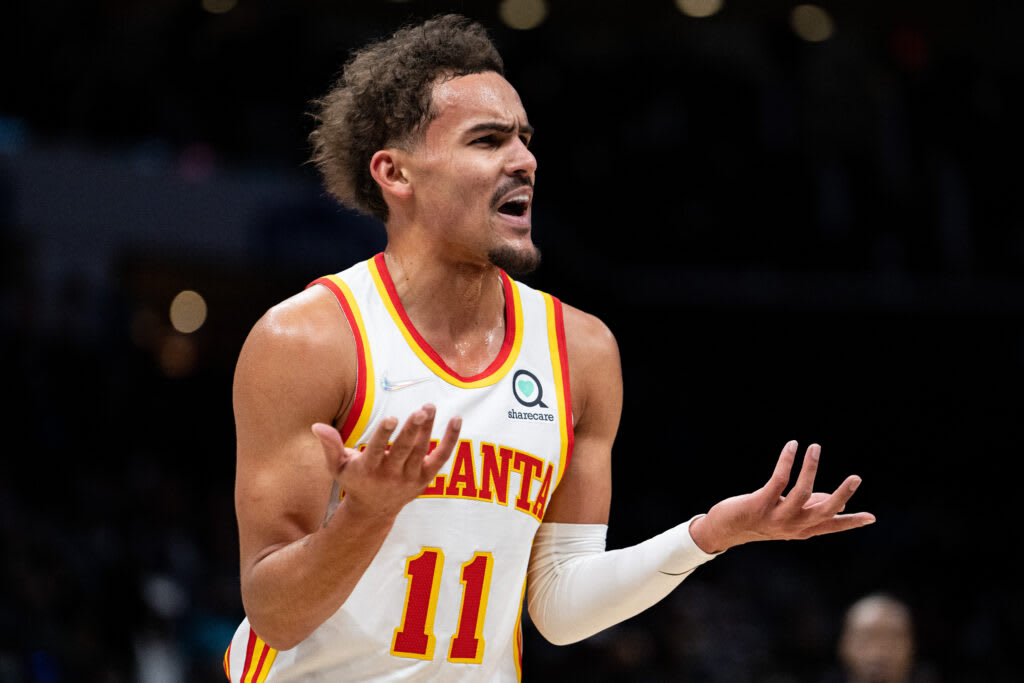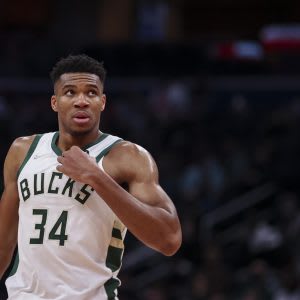After a 25-11 finish to the regular season and a surprise trip to the Eastern Conference Finals, the next linear step in the equation would have been for the Hawks to emerge as serious Finals contenders in 2022. Instead, the team has stumbled its way to a 31-32 record, fighting for the hope of hosting a play-in game on their own turf.
Many who follow the team will cite the team’s massive decline defensively as the main reason for their regression (27th in defensive efficiency). And while I agree, I don’t think last year’s production would be sufficient to reach the next logical step towards securing an NBA title:
Even last year’s superior defensive version of the Hawks (17th) does not crack this top-12 threshold. Plus, I question the resiliency of that group’s fortification, as they were aided immensely by shooting variability. Last season, the Hawks surrendered the second-lowest three-point percentage on “open” shots and the fifth-lowest on “wide-open” looks (the kind of shots defenses have very little effect on).
So a return to normalcy is not the solution for Atlanta. There is something systematically wrong here, but what?
What’s Wrong with the Defense
From watching this group, you’ll notice four core issues responsible for their defensive deficiencies. The first was brought to my attention by Brad Rowland on a recent episode of Locked on Hawks (great podcast, by the way): their poor perimeter defense.
De’Andre Hunter’s return from injury has mitigated the damages to some extent, but as we’ve seen in the past with teams like Utah (with Royce O’Neal), having one good point-of-attack stopper will not suffice.
I like Kevin Huerter and Bogdan Bogdanović in certain matchups. I think they have good instincts and strong technique when they can get their base set. But I don’t like having them constantly navigate through ball-screens at the point-of-attack (both rank in the 27th percentile in this category).
This leads us directly to their next problem. The Hawks struggle to slow down the pick-and-roll altogether, which is a crucial part of success in today’s NBA. The Hawks are currently 21st in the league at defending ball-handlers in these actions (per NBA.com). Of the other nine teams in the bottom ten of this measure, only the Cleveland Cavaliers currently hold a top-6 record in their respective conference.
The first two warts are more personnel-specific (more on that a little later), but something that can help a less talented team overcome these limitations is great communication. Unfortunately, the Hawks are sorely lacking here as well:
Here, Danilo Gallinari is directing Lou Williams to load up the strong side so he can zone up Austin Reeves and Malik Monk on the weak side. Williams doesn’t get the message, and it leads to an old, relatively-unathletic man hustling down the court trying to contest a shot. (Sidebar: you can tell how well a team communicates by watching how they switch).
This next clip illustrates their poor on-court articulation skills and their fourth issue, their horrid transition defense:
According to Cleaning the Glass, the Hawks rank 29th in transition defense, that’s right, 29th, allowing 1.33 points per possession. Again, part of this is due to a lack of discipline (which is strange because McMillian-coached teams normally excel at this). Guys aren’t doing a great job of calling out who needs to cover who until they can recover into their halfcourt sets.
However, that isn’t the sole culprit for the poor performance. A large portion of transition defense is actually contingent on the offense’s lead initiator – in this case, Trae Young.
Since Young is so often the head of the snake in Atlanta’s offense (3rd in the league in usage), he’s also the one tasked with masquerading as their primary backline defender until the pace settles down. And judging from the clip above (and his 6-foot, 180-pound stature), you can see where issues arise.
Can the Hawks be Fixed?
Recently, I wrote an article about Young’s offensive growth and compared his production this season to other high-usage guile-based guards from NBA history. Fortunately for Hawks fans, all of the guards I mentioned in that article (Paul, Price, Harden, and Nash) proved capable of contributing to at least one top-12 defense during their prime. So there’s no reason the Hawks can’t do the same with Young.
As for prescriptions, I think a great first step would be passing the designation of defensive anchor over to Onyeka Okongwu (when he gets healthy). While not all the Hawks issues lie on Clint Capela’s shoulders, he’s lost a step this season, and the limited nature of his ball screen defense is debilitating in a league that prioritizes scheme versatility (shoutout Steve Jones Jr.).
For instance, here are a couple of clips from a January shootout against the Trail Blazers. Notice the difference in how these two fill the gap in drop:
Biomechanics expert Skyfall credits Okongwu’s superior versatility as a defender to his body control and overall dexterity. In a brief interview with him, he told me: “it’s [Okongwu’s] knack of knowing angles and timing and controlling his own body. He understands how to use his body really well.”
His versatility and adroitness will help cure some of their ball screen and point-of-attack woes (thanks to his ability to switch on smaller players).
Many have cited the tradeoff that exists between offensive rebounding and transition defense. Typically, if you do one well, the other suffers as a result. With Capela on the floor, the Hawks are a much better offensive rebounding team, but they are also eight points worse in transition (21st percentile). In contrast, with Okongwu, the Hawks are a worse offensive rebounding team but closer to neutral with him in transition. I’d contend that the prolific nature of this Hawks offense (3rd in NBA) affords them the luxury of sacrificing some offensive rebounding in the service of their defense.
Overall, while the sample is small, the numbers seem to agree with my assessment. The Hawks are really solid on defense when Okongwu is at the helm of protection duties, particularly when paired with John Collins. In their 167 minutes together on the floor, the Hawks have posted a 105.8 defensive rating.
Okongwu alone can not alleviate all the problems that persist throughout the Hawks’ defense. They still need to strengthen that secondary point-of-attack defender position alongside Hunter and pick some of the low-hanging fruit that exists in the way of effort and on-court dialogue. But the fact that the Hawks are seven points better defensively with Okongwu on the floor is a promising sign that pathways towards curing this nightmare and getting back on Larry O’Brien road are firmly within their talons’ grasp.


